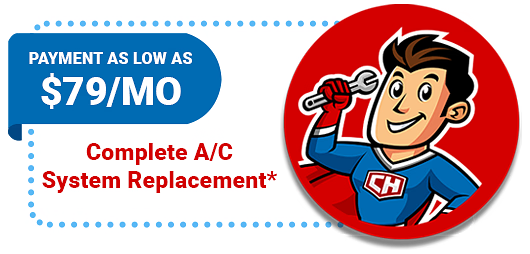Air conditioning systems are crucial for maintaining a comfortable living environment, especially during the hot summer months. With advancements in technology, newer AC models now offer a plethora of energy-efficient features, which not only help in reducing energy consumption but also contribute to a better environment. We will discuss the benefits of having an energy-efficient AC system and the signs that signal when it’s time to consider AC replacement.
Energy-efficient air conditioners are designed to consume less power while still providing the desired cooling effect. They are equipped with modern technology that enables them to reduce energy consumption without compromising on performance. Upgrading to an energy-efficient AC system comes with several compelling advantages, including reduced energy bills, an eco-friendly footprint, improved cooling performance, and a longer operating life for the unit.
How Energy-Efficient AC Systems Work
Energy-efficient air conditioning systems are designed to consume less electricity by utilizing advanced technology and features that optimize their performance. Some of the key components of energy-efficient AC systems include:- Variable-speed compressors – These compressors adjust their speed continuously based on cooling demand, reducing energy consumption while maintaining a consistent indoor temperature.
- Programmable thermostats – Allowing you to set a precise temperature schedule based on your home occupancy patterns, programmable thermostats help save energy by maintaining optimal temperature settings.
- High-efficiency filters – Improved air filters ensure better airflow, contributing to the overall energy efficiency of the system while also preserving indoor air quality.
- Advanced fan motors – Modern fan motors work in tandem with variable-speed compressors, adjusting their rotation speed to minimize energy usage.
Benefits of Upgrading to an Energy-Efficient AC System
Investing in an energy-efficient AC system provides a range of benefits that not only improve the comfort of your living space but also contribute to a greener environment. Some of the key advantages include:- Lower energy consumption – Energy-efficient AC systems use less power compared to traditional models, which helps to lower your electricity bills and save money in the long run.
- Enhanced performance and reliability – Modern AC systems are constructed with high-quality components, promising better performance, fewer breakdowns, and longer-lasting durability than older models.
- Improved air quality – Advanced air filters and state-of-the-art technology in energy-efficient AC systems contribute to better air circulation and filtration, thus enhancing indoor air quality.
- Environmental benefits – By consuming less electricity, energy-efficient AC systems reduce greenhouse gas emissions and contribute to a healthier environment.
Signs That It’s Time to Consider AC Replacement
Your air conditioning system may be due for a replacement when you start to notice any of the following signs:- Age of the system – If your AC system is more than 10-15 years old, it may be time to consider replacement as it’s nearing the end of its expected lifespan. Newer models will offer updated features and improved efficiency.
- Frequent repairs – Frequent breakdowns that require costly repairs can be a significant indicator that your AC system is reaching its limit. It’s often more cost-effective to invest in a new, energy-efficient system instead of expensive repairs to an old unit.
- High energy bills – Increased energy bills despite regular maintenance suggest that your AC system is losing its efficiency, and upgrading to an energy-efficient model may lower your electricity costs.
- Poor performance – If your AC struggles to maintain a consistent temperature or cool your home effectively, this could be a sign that it’s time for a replacement.
Choosing the Right Energy-Efficient AC System
When selecting a new energy-efficient AC system for your home, it’s important to consider the following factors to ensure you invest in the right unit:- Energy efficiency rating – Look for an AC system with a high Seasonal Energy Efficiency Ratio (SEER) rating. A higher SEER rating indicates better energy efficiency and potential cost savings on your electricity bills.
- Size of the system – Consult with our professionals to determine the appropriate size of the AC system for your home, based on factors like the size and layout of your living space, insulation, and climate.
- Features and technology – Advanced features such as variable-speed compressors, programmable thermostats, and cutting-edge fan motors increase the system’s efficiency and overall performance.
- Compatibility with your existing HVAC system – It’s crucial to ensure that your new AC unit is compatible with your existing HVAC system and components to guarantee seamless installation and operation.










